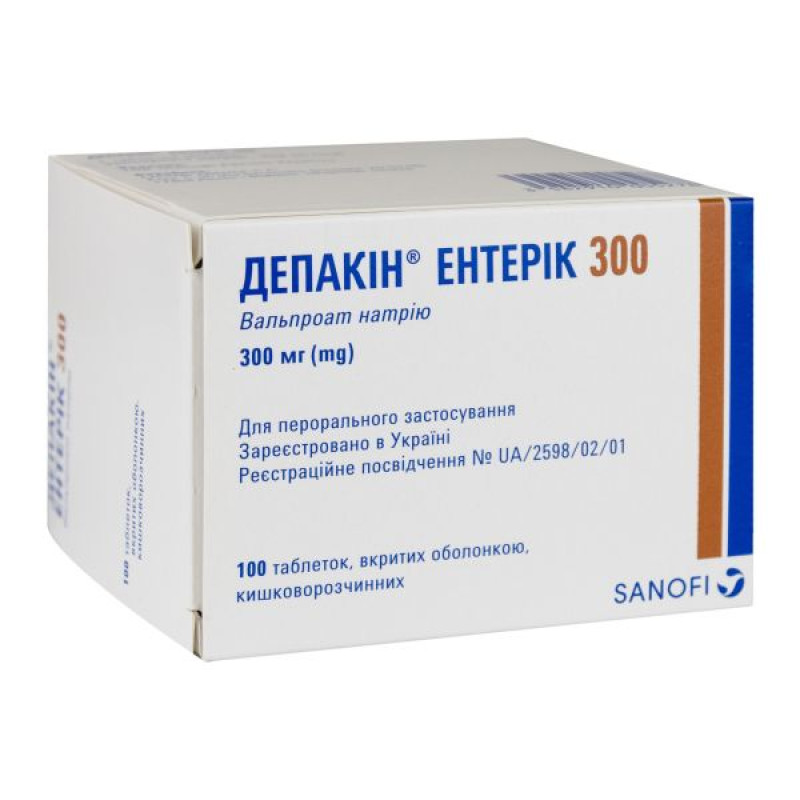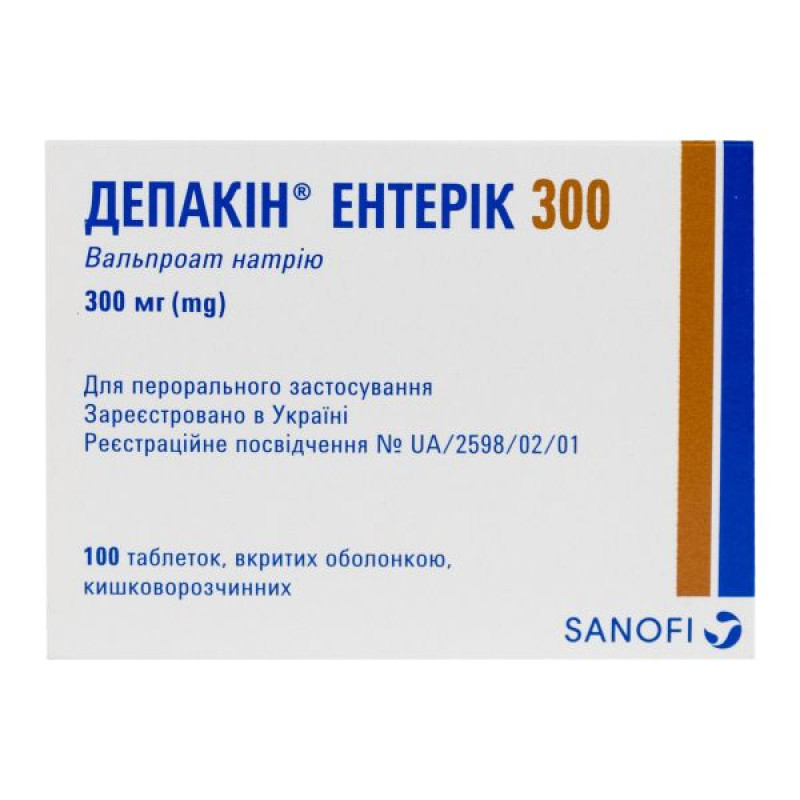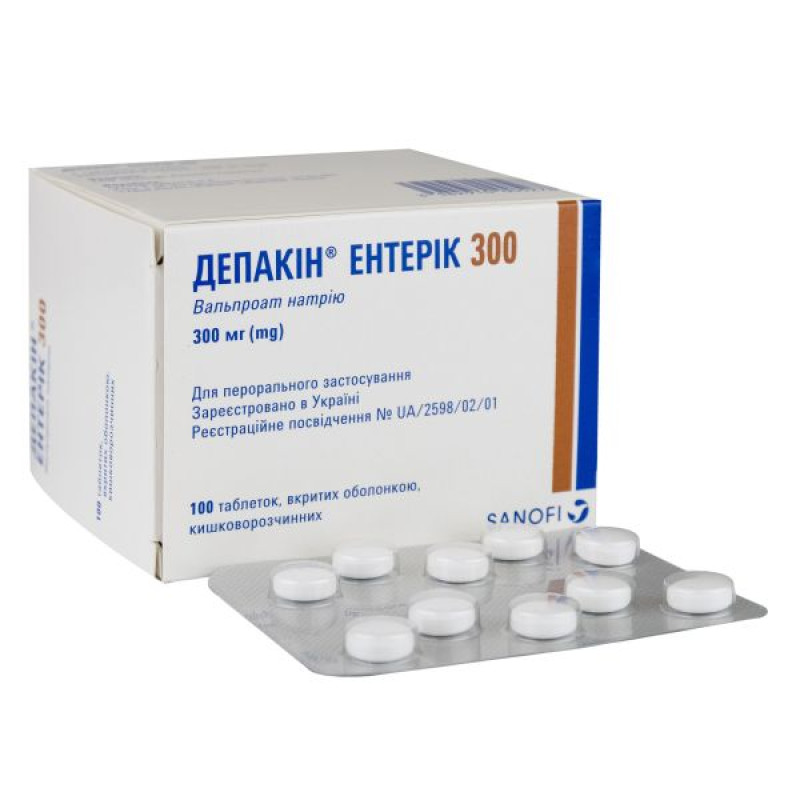Depakine enteric 300 enteric-coated tablets 300 mg No. 100

Depakine Chrono tablets are indicated for:
As monotherapy:
primary generalized epilepsy clonic-tonic seizures with or without myoclonic seizures, absences, myoclonic seizures, combined tonic-clonic seizures and absences; benign partial epilepsy, in particular rolandic epilepsy.As monotherapy or in combination with other antiepileptic drugs:
secondary generalized epilepsy; simple or complex partial epileptic seizures.If monotherapy is not sufficiently effective, combined use of Depakine Enteric 300 with another anticonvulsant is indicated.
Composition
Active ingredient: sodium valproate;
1 tablet contains sodium valproate 300 mg;
Excipients: (K 90), calcium silicate, talc, magnesium stearate shell: methacrylate copolymer (type A), talc, opaspri white type K1-7000 (contains titanium dioxide (E 171) and hydroxypropylcellulose), diethyl phthalate, cellulose acetyl phthalate.
Contraindication
Hypersensitivity to the drug or to any of the components of the drug in history. Acute hepatitis. Chronic hepatitis. Cases of severe hepatitis in the patient's individual or family history, especially caused by drugs. Hepatic porphyria. Combination with mefloquine and St. John's wort preparations.Method of application
The recommended average daily dose of valproate is 20-30 mg/kg for children and adults. Daily doses greater than 35 mg/kg for children and 30 mg/kg for adults are very rarely required in monotherapy with the drug.
The therapeutic effect is usually observed when the plasma concentration reaches 40-100 mg/L (278-694 μmol/L).
The dose should be reduced if plasma concentrations exceed 200 mg/L (1388 mmol/L). It is recommended that plasma levels be determined at doses of 50 mg/kg/day or higher.
It is advisable to take a blood sample to determine the concentration of valproic acid in the morning before taking the first dose of the drug.
Application features
Pregnant women
Contraindicated.
Children
For children under 11 years of age, given the size of the tablet and the need for dose titration, Depakine Enteric 300 is recommended to be used in syrup form.
Drivers
Patients who drive vehicles and work with complex mechanisms should be warned about the risk of drowsiness, especially in the case of complex anticonvulsant therapy or concomitant use of other drugs that may increase drowsiness.
Overdose
Symptoms: coma with muscular hypotension, hyporeflexia, miosis, respiratory failure and metabolic acidosis. Isolated cases of intracranial hypertension resulting from cerebral edema have been described.
Treatment: gastric lavage, maintenance of effective diuresis, monitoring of the cardiovascular and respiratory systems. In very severe cases, if necessary, extrarenal dialysis can be performed.
The prognosis for such poisoning is generally favorable, although several fatal cases have been reported.
Side effects
Blood and lymphatic system disorders: Dose-related thrombocytopenia has been reported, usually occurring systemically but without clinical consequences. In patients with asymptomatic thrombocytopenia, the dose of this medicinal product should be reduced if possible, based on platelet count and disease control, after which thrombocytopenia usually resolves.
Interaction
Contraindicated combinations:
With mefloquine: risk of epileptic seizures in patients with epilepsy, increased metabolism of valproic acid and the convulsant effect of mefloquine. With St. John's wort preparations: risk of decreased plasma concentration of the anticonvulsant drug and reduced efficacy.Alcoholic beverages should not be consumed during treatment with valproate.
Storage conditions
Keep out of reach of children.
Store in the original packaging in a dry place at a temperature not exceeding 25 °C.
Shelf life - 3 years.
There are no reviews for this product.
There are no reviews for this product, be the first to leave your review.
No questions about this product, be the first and ask your question.








